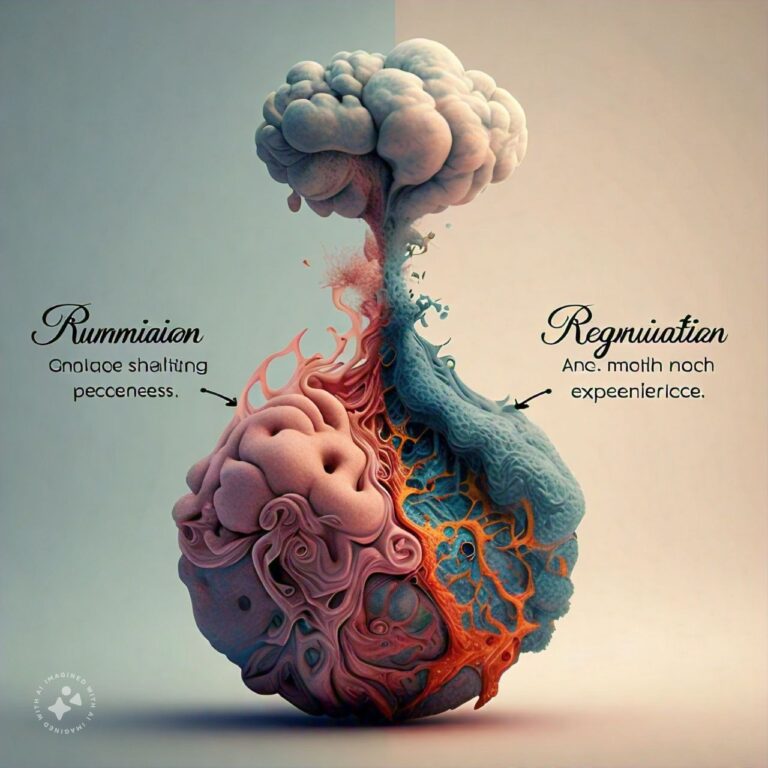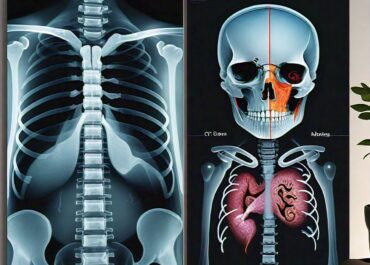
Differences Between Rumination and Regurgitation
Rumination and regurgitation are two distinct physiological processes that are often confused due to their superficial similarities. Both involve the return of food or liquid from the stomach or esophagus, but the underlying mechanisms and reasons behind these processes differ significantly. Rumination typically refers to the repetitive regurgitation of food that has been swallowed, followed by re-chewing and re-swallowing, often seen in both humans and animals. It is commonly associated with certain digestive disorders or psychological conditions. Regurgitation, on the other hand, is the involuntary return of undigested food or liquid from the esophagus into the mouth, which is often seen in conditions like gastroesophageal reflux disease (GERD) and is not usually followed by re-chewing.
Understanding the differences between these two processes is important in clinical diagnosis and treatment, as they can have different causes, symptoms, and health implications.
Rumination Overview
Rumination, in a physiological context, refers to the voluntary or involuntary regurgitation of previously ingested food, followed by re-chewing and re-swallowing or spitting out. It is often seen in individuals with rumination disorder, which is a condition where this behavior becomes a chronic and repetitive process. While rumination is a natural process in certain animals (like cows and sheep) to aid in digestion, in humans, it is typically considered abnormal and can be associated with digestive issues or mental health conditions.
Rumination is most often observed in infants, individuals with developmental disabilities, or people with eating disorders, but it can also occur in otherwise healthy individuals. Unlike vomiting, rumination does not involve nausea or retching, and the food brought up is typically undigested or partially digested, often without the acidic taste associated with vomiting.
Rumination Disorder in Humans:
Rumination disorder is a condition characterized by the repeated regurgitation of food, which occurs without any signs of nausea or gastrointestinal illness. Individuals with this disorder chew the regurgitated food again and either swallow it or spit it out. The behavior typically occurs after meals, and episodes can last for several minutes.
Causes of Rumination Disorder:
The exact cause of rumination disorder is not always clear, but it is thought to result from a combination of psychological, behavioral, and physiological factors. Some of the potential causes include:
- Psychological Factors:
In some individuals, rumination may be linked to stress, anxiety, or trauma. The act of regurgitation and re-chewing can provide a sense of comfort or relief in stressful situations. - Developmental Disabilities:
Rumination disorder is more common in individuals with intellectual or developmental disabilities. The behavior may be self-soothing or a way to gain attention. - Digestive Issues:
Some people with gastrointestinal conditions, such as delayed gastric emptying, may develop rumination as a coping mechanism for discomfort after eating. - Habitual Behavior:
In some cases, rumination may develop as a learned behavior, where the individual finds the sensation of regurgitating food to be pleasurable or satisfying.
Symptoms of Rumination Disorder:
- Frequent regurgitation of food, typically within 30 minutes of eating
- Re-chewing, re-swallowing, or spitting out regurgitated food
- Absence of nausea, retching, or disgust during regurgitation
- Unexplained weight loss in severe cases
- Bad breath and dental issues due to the constant exposure of teeth to regurgitated food
Diagnosis of Rumination Disorder:
Diagnosing rumination disorder usually involves ruling out other gastrointestinal conditions, such as gastroesophageal reflux disease (GERD), vomiting disorders, or structural abnormalities of the stomach or esophagus. Physicians may perform physical exams, review the patient’s medical history, and conduct tests such as upper endoscopy, manometry, or pH monitoring to rule out other causes.
Treatment of Rumination Disorder:
Treatment for rumination disorder often involves a combination of behavioral therapy, dietary adjustments, and, in some cases, medication. Behavioral interventions, such as diaphragmatic breathing techniques, can help individuals retrain their muscles to prevent regurgitation. Cognitive-behavioral therapy (CBT) can also be effective in addressing any underlying psychological factors contributing to the condition. In severe cases, medications that improve gastrointestinal motility or reduce stomach acid may be prescribed.
Regurgitation Overview
Regurgitation refers to the passive return of undigested or partially digested food or liquid from the esophagus into the mouth. It is an involuntary process, unlike rumination, and does not involve re-chewing or re-swallowing of the food. Regurgitation often occurs in people with digestive issues such as gastroesophageal reflux disease (GERD), esophageal motility disorders, or mechanical blockages in the esophagus.
Unlike vomiting, regurgitation is not typically preceded by nausea, and there is no forceful contraction of the abdominal muscles. The food or liquid that comes up is often described as "effortless," and may not be accompanied by any acidic or bile-like taste. Regurgitation can be a benign, occasional occurrence, but if frequent, it may indicate an underlying medical condition that requires treatment.
Common Causes of Regurgitation:
Regurgitation can have various causes, including:
- Gastroesophageal Reflux Disease (GERD):
GERD is one of the most common causes of regurgitation. In GERD, stomach acid and sometimes food flow back into the esophagus, causing a burning sensation (heartburn) and regurgitation of stomach contents. This happens because the lower esophageal sphincter (LES) fails to close properly, allowing contents to escape the stomach. - Esophageal Motility Disorders:
Conditions that affect the movement of food through the esophagus, such as achalasia, can cause regurgitation. In these disorders, the esophagus fails to properly contract, which means food cannot move efficiently into the stomach. - Hiatal Hernia:
A hiatal hernia occurs when part of the stomach pushes through the diaphragm and into the chest cavity, which can lead to acid reflux and regurgitation. - Esophageal Strictures:
Narrowing of the esophagus due to scar tissue, tumors, or other blockages can prevent food from reaching the stomach, causing regurgitation. - Infantile Regurgitation:
Regurgitation is common in infants, especially during the first year of life, as their digestive systems are still developing. This type of regurgitation is often referred to as “spitting up” and is usually harmless.
Symptoms of Regurgitation:
- The passive return of food or liquid into the mouth without effort
- A sensation of food “sticking” in the chest or throat
- Heartburn or indigestion, especially with GERD
- Sour or bitter taste in the mouth if stomach acid is involved
- Discomfort in the chest or throat after eating
Diagnosis of Regurgitation:
The diagnosis of chronic regurgitation often involves a thorough evaluation of the patient’s symptoms, medical history, and diagnostic tests. Tests commonly used to diagnose regurgitation and related conditions include:
- Upper Endoscopy: To visually inspect the esophagus and stomach for abnormalities, such as inflammation, strictures, or tumors.
- pH Monitoring: To measure the level of acid reflux in the esophagus over a 24-hour period.
- Esophageal Manometry: To assess the function of the esophageal muscles and the lower esophageal sphincter.
Treatment of Regurgitation:
The treatment of regurgitation depends on its underlying cause. For GERD-related regurgitation, lifestyle changes such as avoiding trigger foods (e.g., fatty foods, caffeine, and alcohol), elevating the head of the bed, and eating smaller meals can help reduce symptoms. Medications such as proton pump inhibitors (PPIs) or H2 receptor blockers may be prescribed to reduce stomach acid production. In more severe cases, surgical options like fundoplication (which reinforces the lower esophageal sphincter) may be considered.
For regurgitation caused by esophageal motility disorders or structural abnormalities, treatment may involve procedures to widen the esophagus (esophageal dilation), surgical interventions, or medications to improve esophageal motility.
Differences Between Rumination and Regurgitation
- Voluntary vs. Involuntary:
Rumination involves the voluntary or habitual regurgitation of food, followed by re-chewing and re-swallowing. In contrast, regurgitation is an involuntary, passive process where food or liquid comes back up into the mouth without any effort or control. - Cause:
Rumination is often linked to behavioral, psychological, or developmental factors, whereas regurgitation is usually associated with physiological conditions, such as GERD, esophageal motility disorders, or anatomical issues like a hiatal hernia. - Associated Sensations:
Rumination does not typically involve nausea or discomfort, and the food that is regurgitated is often undigested. Regurgitation, especially in GERD, may be accompanied by heartburn, a sour or bitter taste, and a burning sensation due to stomach acid reflux. - Frequency:
Rumination tends to be a repetitive and chronic behavior, occurring after most meals. Regurgitation, on the other hand, may be occasional or chronic depending on the underlying cause. - Treatment Approach:
Treatment for rumination disorder often focuses on behavioral therapies, such as diaphragmatic breathing or cognitive-behavioral therapy, to break the habit of regurgitation. Treatment for regurgitation is more focused on addressing the underlying physiological cause, such as treating GERD with medications or managing esophageal motility disorders.
Conclusion
Rumination and regurgitation, while often confused due to their similarities, are distinct processes with different causes, symptoms, and implications for health. Rumination involves the repetitive regurgitation of food, followed by re-chewing or re-swallowing, and is often associated with behavioral or psychological conditions. Regurgitation, on the other hand, is an involuntary process, often linked to conditions such as GERD or esophageal motility disorders. Proper diagnosis and treatment of these conditions are important for preventing complications and improving quality of life. By understanding the differences between rumination and regurgitation, individuals can seek appropriate medical care and treatment to address their symptoms.
FAQs
Related Topics
- All
- Animals
- Diseases
- Health
- Money
- Politics
© 2024 OnYelp.com. All rights reserved. Terms and Conditions | Contact Us | About us





